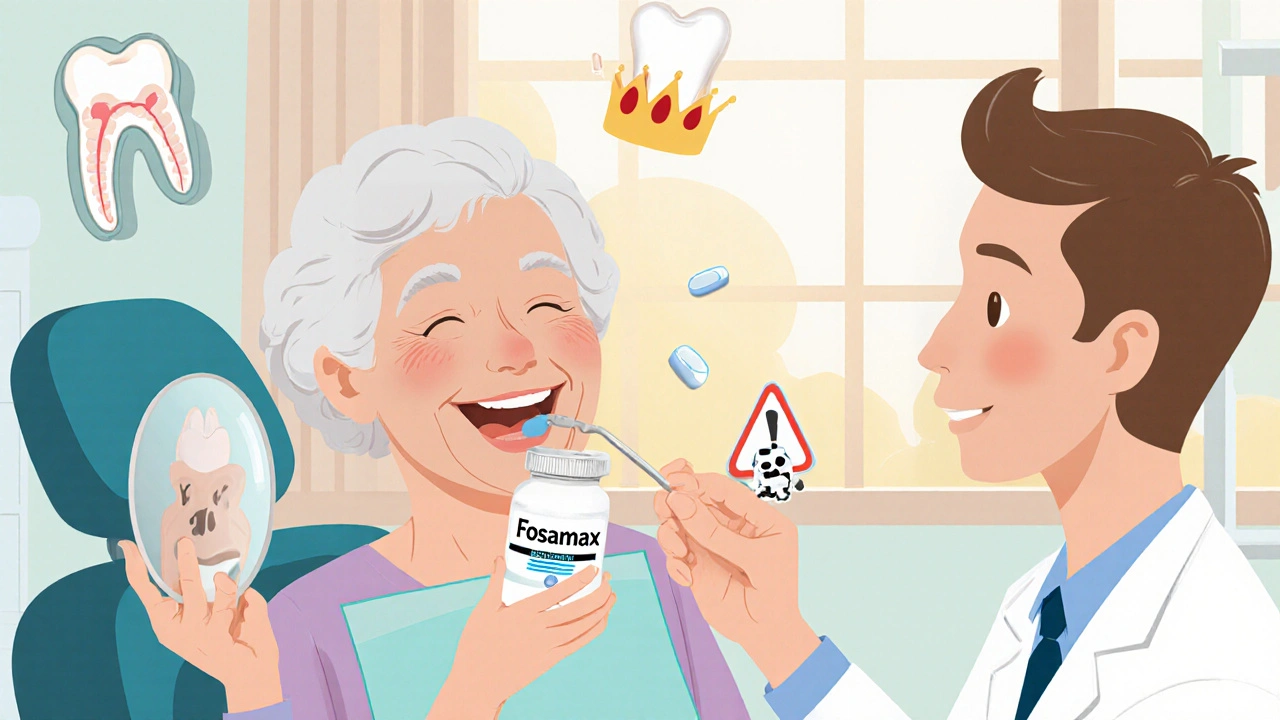MRONJ: What It Is, How It Happens, and What You Need to Know
When you hear MRONJ, Medication-Related Osteonecrosis of the Jaw. Also known as bisphosphonate-related osteonecrosis of the jaw, it is a condition where the jawbone starts to die because certain drugs block its natural repair process. It doesn’t happen overnight, but when it does, it’s serious—painful, hard to treat, and often linked to drugs you might be taking for osteoporosis or cancer.
MRONJ isn’t just a dental issue. It’s a side effect of powerful medications like bisphosphonates, a class of drugs used to strengthen bones in people with osteoporosis or cancer that has spread to bone. Drugs like zoledronic acid and alendronate are common culprits. Even denosumab, a different type of bone-strengthening drug often used when bisphosphonates aren’t an option, can trigger it. The problem? These drugs stop your jawbone from healing after trauma—like a tooth extraction, gum surgery, or even ill-fitting dentures. Without proper blood flow and cell repair, the bone dies, gets exposed, and won’t heal.
People on long-term treatment for multiple myeloma or metastatic breast cancer are at the highest risk. But it’s not just cancer patients. Older adults taking bisphosphonates for osteoporosis can also develop MRONJ, especially if they have poor dental health or skip regular checkups. The good news? It’s rare. The bad news? Once it starts, it’s hard to reverse. Prevention is everything. That means telling your dentist you’re on these drugs before any procedure, keeping your mouth clean, and avoiding invasive dental work if possible.
You won’t find MRONJ in every article about bone health or medication side effects. But if you’re on one of these drugs—or caring for someone who is—you need to know the signs: persistent jaw pain, swelling, loose teeth, or bone showing through the gums. These aren’t normal after a tooth extraction. They’re red flags. And the articles below cover exactly this: how MRONJ connects to dental care, what medications raise the risk, how to manage it without stopping life-saving treatments, and what alternatives exist for bone protection. No fluff. No guesses. Just real cases, real science, and real steps you can take to protect your jaw before it’s too late.

Osteoporosis Medications: Bisphosphonates and Jaw Necrosis Risks
Bisphosphonates effectively reduce osteoporosis fractures but carry a rare risk of jaw necrosis. Learn the real numbers, who’s at risk, and how to stay safe without stopping your medication.





